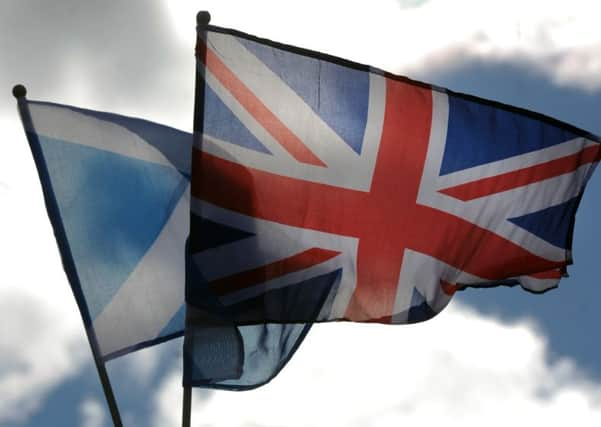Sam Ghibaldan: Put people, not nations, first


In THAT land of the free, the United States, the name given to my political perspective has been used as a term of abuse. Here in the UK, it is viewed by some as describing a politics that is a bit wishy-washy, its adherents too nice for their own good – or anyone else’s.
But liberalism – for I am a liberal – is probably the single most important, and indeed successful, political philosophy in the West today. It underpins the fundamental change in politics and government of the past 300-odd years: the shift from people serving the state to the state serving people.
Advertisement
Hide AdAdvertisement
Hide AdThis has been a critical transformation. We, the people, are no longer just an afterthought, cannon fodder to be cast into war whenever national pride demands, with thousands of casualties dismissed airily as a glorious sacrifice. Now, military action is usually (though not always) justified on humanitarian grounds, every single death investigated. The state’s raison d’être is no longer power or territorial expansion. Nor is it blind to alleviating poverty. Instead, it is central to its purpose.
There are many reasons for this change, of course. But at their core is the liberal belief that gradually took root during the 19th century, and was brought to fruition in response to the lives squandered during two world wars, that every individual mattered. Once that dangerous, radical idea became established, so did the concept that the state should nurture people, equipping them with education, healthcare and other support. As it turned out, these were just the things needed to promote personal liberty, which exploded into the 1960s as deference fell out of fashion and choice became an expectation instead of a luxury.
Liberalism’s contribution to human wellbeing, in the form of happiness and self-fulfilment, has been immense. We are free. Free to make our own career choices, to enjoy ourselves as we wish, to believe – or not – in whatever we want, to live comfortably regardless of our sexuality without fear of society’s censure.
Personal choice, freedom, liberty – however you describe it – is more important than nationality, religion or any tribal identity. It allows us to be who we are, and who we want to be. People may choose allegiances, identities, whether related to football teams, musical tribes, religions or nations. But in a society that allows and facilitates such diversity, the important thing is that people can do just that – choose – and the state does not define them, or their rights, by those choices. First and foremost, they are human beings, individuals and fellow citizens.
In the context of the referendum, that counts. Nationalism inevitably ends up defining people by where they live, not who they choose to be. To an extent, that is true of any state, but actively imposing new borders goes against the trend that geographic boundaries are becoming less relevant. We are individuals amongst the European Union’s 500 million citizens. The modern European political mantra focuses on people rather than states. National barriers are being smoothed over, worked around. Why would we put a new one up?
Liberalism recognises that different layers of governance are necessary to meet people’s needs effectively (and, for that matter, to avoid over-concentration of power). Take climate change. It affects everyone, everywhere on the globe. What happens in China affects people in Wick. So international governance is required. But it is also essential that carbon-reduction initiatives have the drive and focus of national and local governments to make them happen, and ensure solutions fit local circumstances.
Thus, in our world, interconnected by climate change, trade and communications, nations are interdependent. National independence, whether for the US, France or India, is a fallacy.
As that is true across the globe, it is also true of the people of these islands. Liberalism holds that decisions are best taken as close as practical to those affected. It makes sense, therefore, that the Scottish Parliament takes decisions about providing services like education and health. For that matter, it should raise most of the money needed to pay for them. Responsible government is more likely to breed efficient government.
Advertisement
Hide AdAdvertisement
Hide AdBut some things are best organised at a further remove; to be effective, ensure quality or offer security, the resources and interests of a wider group need to come together. In our context, as fellow residents of a small group of islands, speaking – almost universally – a common language, sharing cultural connections and with a highly integrated economy, logic suggests that a federal structure of governance would answer our needs. That is not so much patriotic as pragmatic.
Take, for example, the BBC. It provides world-renowned programming, often of outstanding quality. That costs a large amount of money. Does anyone seriously think anything of that quality and reach could be replicated in an independent Scotland with less than a tenth of the budget? It is the very fact of a wide pool of resources – and creative and journalistic talent – that makes it possible.
Independence is an attractive word. In our liberal state, we are individually independent. But when it comes to collective decision-making, individuals cannot be independent. Neither can nations.
Let us recognise then that, as we are individually independent, we are collectively – in communities, Scotland, the UK, Europe and the wider world – interdependent. Focusing on nationality has never improved lives.
What matters is putting people, not nations, first.